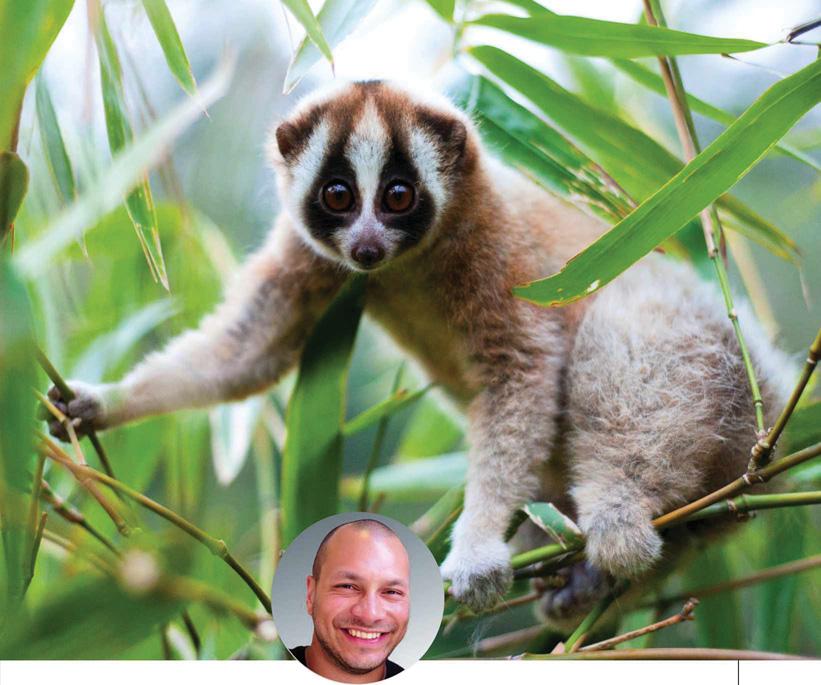Prøve GULL - Gratis
Toxins and venoms: nature's poisons
BBC Wildlife
|July 2023
WITH EVOLUTIONARY BIOLOGIST JV CHAMARY

WHEN ASKED TO NAME substances that cause sickness or death, many people would mention. poisons that are harmful to humans - chemical elements such as arsenic, plants such as hemlock, or death cap mushrooms. In fact, nearly every major group of organisms makes natural poisons, which come in two flavours: toxin and venom.
What's the difference between a toxin and a venom?
They're distinguished by delivery route. A toxin passively enters a recipient's body after being swallowed, inhaled or absorbed through contact. By contrast, a venom is actively delivered into a victim via a bite, spray, stab or sting. But you can't simply. say that toxins are ingested and venoms are injected. When the toxin tetrodotoxin is delivered through the bite of a blue-ringed octopus, it's then technically venom! The two poisons also differ by function.
Toxins are typically used for defence, to deter predators or competitors, venoms are used for offence, to catch prey. They have different compositions, too. A toxin is typically a single molecule and a venom is a mixture that will include toxins. Marine cone-snail venoms can contain over 100 distinct toxins to target a variety of prey.
Where do they come from?
Denne historien er fra July 2023-utgaven av BBC Wildlife.
Abonner på Magzter GOLD for å få tilgang til tusenvis av kuraterte premiumhistorier og over 9000 magasiner og aviser.
Allerede abonnent? Logg på
FLERE HISTORIER FRA BBC Wildlife

BBC Wildlife
"I was terrified the elephant would ram us"
African elephant in Kenya
2 mins
January 2026

BBC Wildlife
ALL YOU EVER NEEDED TO KNOW ABOUT THE Fennec fox
THE FENNEC FOX IS THE SMALLEST fox in the world, with a body length that can be as little as 24cm.
3 mins
January 2026

BBC Wildlife
INTO THE PLASTISPHERE
A unique synthetic ecosystem is evolving in our oceans – welcome to the plastisphere
7 mins
January 2026

BBC Wildlife
“More than half of all animal life exists in a parasitic relationship, and all life lives in symbiosis”
Our survival depends on species evolving to live together - but some relationships take dark turns
7 mins
January 2026

BBC Wildlife
Are animals able to dream?
SLEEP IS A MYSTERIOUS THING. FOR A long time, we weren't sure why we do it.
1 mins
January 2026

BBC Wildlife
Does a cuckoo know it's a cuckoo?
ABSURD LITTLE BIRDS ACROSS THE world lay their eggs in the nests of other species, leaving the hapless parents to raise a changeling at the expense of their own offspring.
2 mins
January 2026

BBC Wildlife
Orcas killing young sharks
Juvenile great whites are easy prey for orca pod
1 mins
January 2026

BBC Wildlife
Ocean goes on tour
Acclaimed film touring the UK, backed by live orchestra and choir
1 min
January 2026

BBC Wildlife
Feisty bats hunt like lions
Winged mammals use a 'hang and wait' strategy to take down large prey
1 mins
January 2026

BBC Wildlife
SNAP-CHAT
Richard Birchett on magical merlins, wily coyotes and charging deer
2 mins
January 2026
Translate
Change font size
